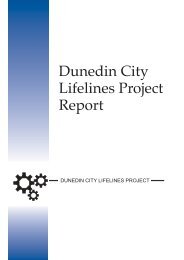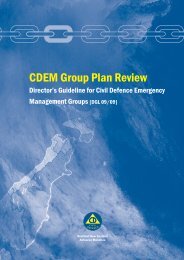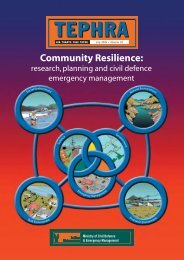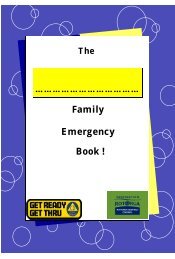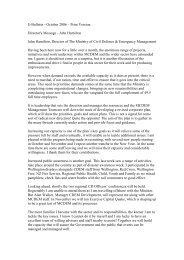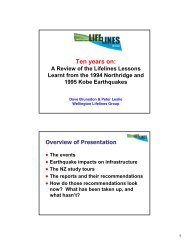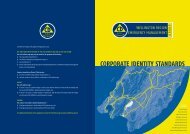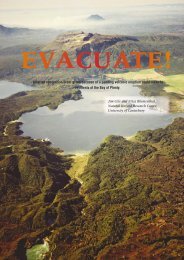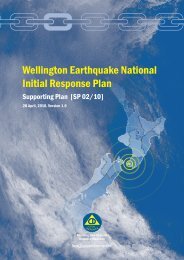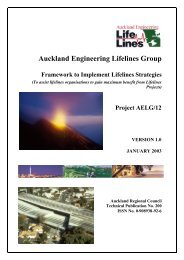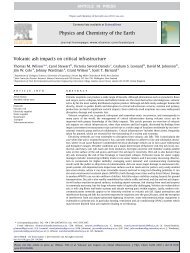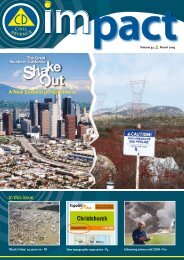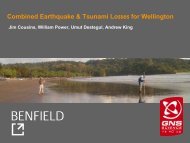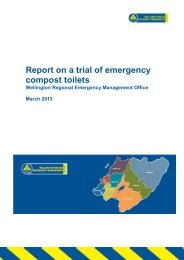Findings show that recent events have had a - Ministry of Civil ...
Findings show that recent events have had a - Ministry of Civil ...
Findings show that recent events have had a - Ministry of Civil ...
You also want an ePaper? Increase the reach of your titles
YUMPU automatically turns print PDFs into web optimized ePapers that Google loves.
Advertising and information<br />
• Around seven in ten (71%) Gisborne residents <strong>have</strong> seen, heard, or read any general advertising about<br />
preparing for a disaster (60% is the national average).<br />
• Gisborne residents are more likely than average to <strong>have</strong> heard advertising about preparing for a disaster<br />
through the radio (32%, cf. 18% national average), but less likely to <strong>have</strong> seen advertising through the<br />
newspaper (19%, cf. 33% national average).<br />
• Gisborne residents are more likely than average to say they <strong>have</strong> not seen any non advertising<br />
information about disasters (27%, cf. 16% national average).<br />
Disaster awareness<br />
• Gisborne residents are more likely than average to say <strong>that</strong> a tsunami is a disaster <strong>that</strong> could occur in<br />
their lifetime (91%, cf. 70% national average). They are less likely to say <strong>that</strong> a hurricane, cyclone, or<br />
storm (27%, cf. 53% national average), or a volcanic eruption (37%, cf. 51% national average) could<br />
occur in their lifetime.<br />
• Gisborne residents are less likely than average to agree the army will be there to help following a<br />
disaster (45%, cf. 63% national average).<br />
• Gisborne residents are less likely than average to agree <strong>that</strong> land line telephone (83%, cf. 92% national<br />
average), water (75%, cf. 89% national average), and sewerage services (76%, cf. 88% national average<br />
could be disrupted following a disaster.<br />
• Gisborne residents are most likely to say <strong>that</strong> in the event <strong>of</strong> an earthquake, people should alert or<br />
check on family, friends and neighbours (58% say this), and take shelter under a desk/doorway (40% say<br />
this). However they are less likely than average to say <strong>that</strong> in the event <strong>of</strong> an earthquake, people should<br />
move to a safe place (37%, cf. 50% national average).<br />
Sample size = 65<br />
© Colmar Brunton 2011 74



